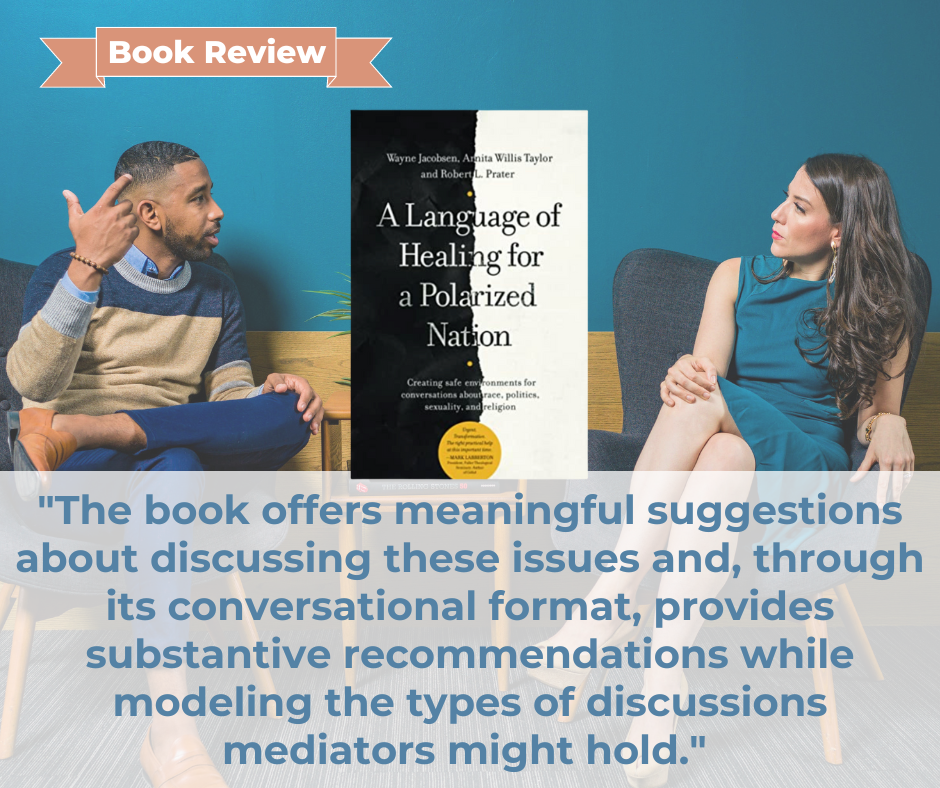By Wayne Jacobsen, Arnita Willis Taylor, and Robert L. Prater

Although there have been periods of fierce and violent division throughout human history, there is a growing sense that there is no room to discuss the issues about which we differ. People now struggle to settle on a standard set of facts while decrying media “echo chambers” where they only hear those perspectives that align with their sense of reality. It may have become impossible to engage in reasonable discourse with people with opposing views in today’s fractured discourse landscape.
In A Language of Healing for a Polarized Nation, three academics from diverse backgrounds engage in a conversation about this very dilemma. Each chapter of the book unfolds as a conversation where each author offers their perspective on a different topic, such as “cultivating compassion,” “disarming the binary bomb,” and “willing to be disruptive.” The book offers meaningful suggestions about discussing these issues and, through its conversational format, provides substantive recommendations while modeling the types of discussions mediators might hold.
Students of the Understanding-Based Approach to Conflict model will appreciate the many techniques and suggestions available as, in broad strokes, the authors call for deep listening and striving to understand opposing views rather than remaining stuck in our reactions to them. The conversations held are productive and hopeful despite each author’s religious and ideological differences. They undoubtedly possess an accepting and open minded perspective, leaving the reader to wonder if the language offered would influence discourse with persons who seem to lack curiosity or devalue tolerance.
Unless we start the conversation, there can be no hope of mutual understanding.
Review by Ivan Alter, CUC board member, collaborative attorney, and mediator
